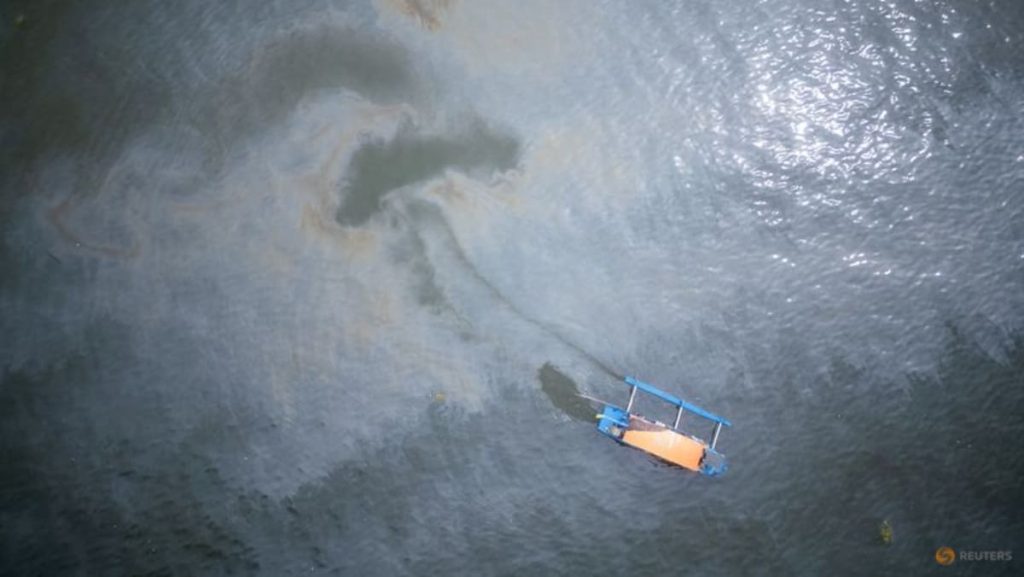An oil spill from a marine tanker that capsized off the coast of Manila Bay in the Philippines has reached the shores of a nearby fishing village, posing a significant threat to the health and livelihood of local fishermen. The tanker, MT Terra Nova, was carrying 1.5 million liters of industrial fuel when it sank in rough seas off the coast of Limay in the province of Bataan. The incident resulted in the death of one crew member and has caused widespread environmental damage.
The town of Tanza in Cavite province, located south of Manila, has been particularly impacted by the oil spill. Fishermen in the area have expressed distress over the arrival of the oil slick on the town’s shores, reporting a foul odor in the air. The spill is expected to have a significant effect on the fishing community, as their main source of livelihood, the sea, has been contaminated by the oil. This will likely lead to a decrease in the demand for seafood, forcing fishermen to sell their catches at lower prices and causing financial hardship.
Local fisherman Renan Honsana, 48, expressed concern over the consequences of the oil spill on the fishing industry. He highlighted the reliance of fishermen on the sea for their livelihood and the devastating impact that the spill will have on their ability to sustain themselves. This sentiment was echoed by other members of the fishing community in Tanza, who are struggling to cope with the immediate and long-term effects of the environmental disaster.
Efforts have begun to mitigate the damage caused by the oil spill, with officials and volunteers working to clean up the contaminated areas and prevent further spread of the fuel. However, the scale of the spill and the extent of the contamination pose a significant challenge for cleanup operations. The environmental impact of the spill is expected to be long-lasting, affecting marine life, coastal ecosystems, and the overall health of the fishing grounds in the region.
The incident serves as a stark reminder of the risks associated with maritime transportation of hazardous materials and the importance of strict safety regulations to prevent such disasters. It also highlights the vulnerability of coastal communities that rely on fishing for their livelihoods and the urgent need for effective response measures to protect their well-being and the marine environment. The government and international authorities are urged to take decisive action to address the causes of the spill, provide assistance to affected communities, and implement preventive measures to avoid similar incidents in the future.
As the cleanup and recovery efforts continue in Tanza and other affected areas, fishermen and residents are left grappling with the aftermath of the oil spill and uncertainty about the future of their way of life. The resilience and solidarity of the community will be crucial in overcoming the challenges posed by the disaster and rebuilding their livelihoods in the face of environmental adversity. It is hoped that lessons will be learned from this unfortunate incident to prevent similar tragedies from occurring and to safeguard the well-being of coastal communities and the marine environment for future generations.


